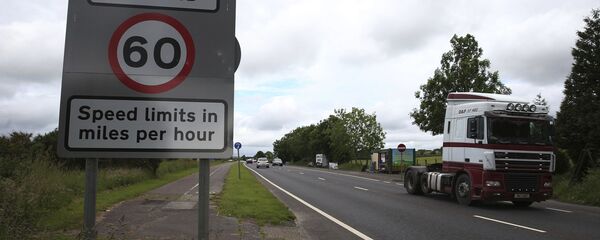It is unlikely that the UK parliament will vote the withdrawal bill down as such a move might create serious legal problems for Britain, political analyst Dr. John Curtice said.
"If the bill itself were not to be passed at all, it would create a very large hole in the Brexit process," Curtice told Radio Sputnik. But this scenario is unlikely, because "at the end of the day a version of this bill will eventually pass parliament," he said, adding that "the argument is only about the details."
The remarks came after Scotland and Wales in July signaled that they would launch a challenge against UK Prime Minister Theresa May over her Brexit plans. The devolved governments accuse the EU Withdrawal Bill of allowing the UK's central government to hijack unacceptably-strong new powers during the Brexit process.
"There is no doubt that the UK has got to sort out how it deals with the 40-years-worth of EU legislation that has been incorporated into British law. Everybody agrees with that. The argument is about how it's being done," Curtice said.
For Curtice, the main argument is about what should happen to areas like agriculture, environmental protection and etc., which have been devolved to the Scottish, Welsh and Northern Irish assemblies and parliaments within the UK.
The latter want these responsibilities to go to the devolved institutions, but this is not what the bill says, the analyst noted.
"The bill says they should come back to Westminster and then Westminster would decide how much to pass on to the devolved institutions," Curtice noted.
However, Curtice once again stressed that the MPs are expected to eventually agree on the bill, with only the details of the document being open to arguments.
The second reading of the bill was approved by 326 votes against 290, but it will still need to go through a third reading before making it to the House of Lords.
The EU Withdrawal Bill would end the precedence of EU laws over UK legislation, repealing the act that made the United Kingdom part of the bloc.
However, the Scottish and Welsh governments announced this summer that they "cannot recommend" legislative consent to the UK government's EU withdrawal bill, unless the changes, required by the devolved governments, are made.
"The European Union (Withdrawal) Bill does not return powers from the EU to the devolved administrations, as promised. It returns them solely to the UK Government and Parliament, and imposes new restrictions on the Scottish Parliament and National Assembly for Wales. On that basis, the Scottish and Welsh Governments cannot recommend legislative consent to be given to the Bill as it currently stands," the joint statement read.
In late March, the United Kingdom officially launched the EU withdrawal process. The Brexit negotiations between London and Brussels, which officially started on June 19, are expected to conclude by the end of March 2019.






